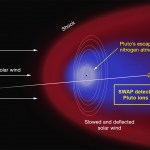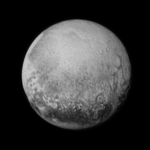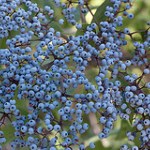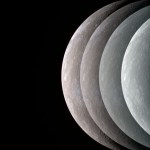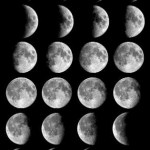Pluto
Did you ever notice that Pluto doesn't have much of a tail? No, not that Pluto! This Pluto:
This has been known for a while. NASA noted this last year:
New Horizons has discovered a region of cold, dense ionized gas tens of thousands of miles beyond Pluto -- the planet’s atmosphere being stripped away by the solar wind and lost to space. Beginning an hour and half after closest approach, the Solar Wind Around Pluto (SWAP) instrument observed a cavity in the solar wind -- the outflow of electrically charged particles from the Sun -- between 48,000 miles (77,000 km) and 68,000 miles (109,000…
New measurements from NASA's New Horizons spacecraft revealed that Pluto, named for the Greco-Roman god once called Hades, is a little more swollen with ice than previously thought, making it the biggest trans-Neptunian object—more voluminous than rival dwarf planet Eris, which is nevertheless more massive. Greg Laden explains why these orbs are not considered full-fledged planets on his blog.
While Eris orbits the Sun within the 'scattered disc,' Pluto orbits in the Kuiper Belt, a collection of gravelly snowballs that Ethan Siegel says outnumber all the planets in our galaxy. The Kuiper Belt…
Short answer: Pluto has only two of the three necessary characteristics to be called a planet. Pluto has not cleared its neighborhood, or orbit. But, of course, there are additional details.
The simplest reason that Pluto is not a planet is that planet experts say so, and this is their job. But you may be looking for a more detailed explanation.
Let's look at what defines a planet. This could be a very long and tedious discussion, because "planet" is an ancient concept used long before scientists knew very much about them. Also, frankly, in many areas of science the definition of a thing,…
On Aardvarchaeology, Martin Rundkvist compiles his best November tweets into one riotous and insightful document. First up: "This chocolate praline contains something that looks and smells like shampoo. Apparently it’s flavoured with elderflower extract." Elderberry has been used for medicinal purposes worldwide for thousands of years, but maybe the praline makers should use the delicious berry extract instead of flower. Kim Krisberg considers less odorous possibilities on The Pump Handle, citing research that says advantages such as "proximity to parks and open spaces" help children start…
“I have announced this star as a comet, but since it is not accompanied by any nebulosity and, further, since its movement is so slow and rather uniform, it has occurred to me several times that it might be something better than a comet. But I have been careful not to advance this supposition to the public.” -Giuseppe Piazzi
So it begins again: the neverending debate about who gets to be a planet and who doesn't. Everyone can bring their own interpretation of the science to the table -- and everyone has their own preferred naming scheme -- but when I think about the Solar System, I try…
"It is not when truth is dirty, but when it is shallow, that the lover of knowledge is reluctant to step into its waters." -Friedrich Nietzsche
Although the innermost planets, from Mercury through Saturn, were known since ancient times, it's only since the advent of the telescope that we've discovered what really lives in our Solar System. Over the past four centuries, the wonders of not only the distant Universe, but also our nearby neighborhood, have been uncovered in spectacular detail.
Image credit: NASA and – I believe – G. Bacon (STScI).
The third and fourth largest planets were…
Today's guest blog post is by Featured Science Author Dr. Fred Bortz
Tune in Thursday, June 13th on our Facebook page at 10 am EST to discuss this post with Dr. Bortz!
More than ten years after it was posted at the "Ask Dr. Fred" page "Why Isn't Pluto a Planet Anymore?" remains by far the most popular page at "Dr. Fred's Place" on the web, getting anywhere between 50 and 100 hits on a typical day.
That's a lot of interest in an icy world that is smaller than the moon and so far away that sunlight takes at least 4 hours to reach it! What could possibly be so fascinating…
My Very Excellent Mother Just Served us Nine Pizzas.
My Very Easy Method Just Speeds Up Naming Planets.
My Very Early Morning Jam Sandwiches Usually Nauseate People.
Mon Vieux Tu M'as Jeté Sur Une Nouvelle Planète!
-- Various mnemonic devices for remembering the order of the nine planets
I just found out that Mercury is shrinking.
The planet, already our most diminutive neighbor, has lost around 3 miles of its 3,000 mile diameter in its life, or one tenth of one percent.This may not sound like much, but in geological terms, three miles is immensely significant.
This boggling fact was…
Still moving stuff over from my last server. Here is one that keeps coming up.
Surprisingly, I STILL get comments and questions from students and teachers about Pluto. Questions such as:
"Why do scientists hate Pluto?"
"How did they discover that Pluto was not a planet"
"What will happen to our planet songs without Pluto?"
"Why does Goofey wear clothes, but Pluto doesn't even though they are BOTH dogs?"
Here is the explanation I like to give. I like to start with the following question:
Suppose you were outside and saw this (image from wikimedia):
What would you call it? Some might…
Phil Plait over at Bad Astronomy posted this terrific piece that started off my Saturday with a smile. It reads like The Onion, though I also can't find the original source. Take a look and see if you agree that author Michael Haber might be onto something...
Emboldened by their success in declaring Pluto not a
planet, the International Astronomical Union determined this week by a
close vote that February is too short to be considered a true month. It
has, however, been granted the newly created status of "dwarf month."
It shares this dubious distinction with several other calendar time…
I can't believe there is still all this talk about what to call Pluto. Can't we just move on? In an effort to help, I have summoned the Zombie Feynman to get his words on the subject. This is what he said:
"We (my father and I) used to go up to the Catskill Mountains for vacations. In New York, you go the Catskill Mountains for vacations. The poor husbands had to go to work during the week, but they would come rushing out for weekends and stay with their families. On the weekends, my father would take me for walks at night. He often took me for walks, and we learned all about the sky, and…
Sure, astronomers might not call it a planet anymore, but every schoolchild knows how badass Pluto really is. It's got a giant moon, Charon, and two smaller ones, Hydra and Nix.
In addition to being colder than ice with an average temperature of 44 Kelvin (that's colder than liquid nitrogen), I'm here to bring you the news that despite the fact that it's so cold and so far from the Sun, Pluto has been melting!
Since its discovery by Clyde Tombaugh in 1930, astronomers have been fascinated with Pluto, making very careful observations of it, trying to learn more about this bizarre, icy sphere…
And if the band you're in starts playing different tunes
I'll see you on the dark side of the Moon.
One of my favorite readers, Zrinka, asks us why we're only able to see one side of the Moon from Earth. Seriously, look at the different phases; we always see the same side of the Moon:
How does this happen? Well, the Moon makes one revolution around the Earth about every 29 days, and that's what causes the Moon phases. But the Moon also rotates once every 29 days also. Because of this, the same side of the Moon always faces the Earth:
We call this "being locked." We're not the only system…
